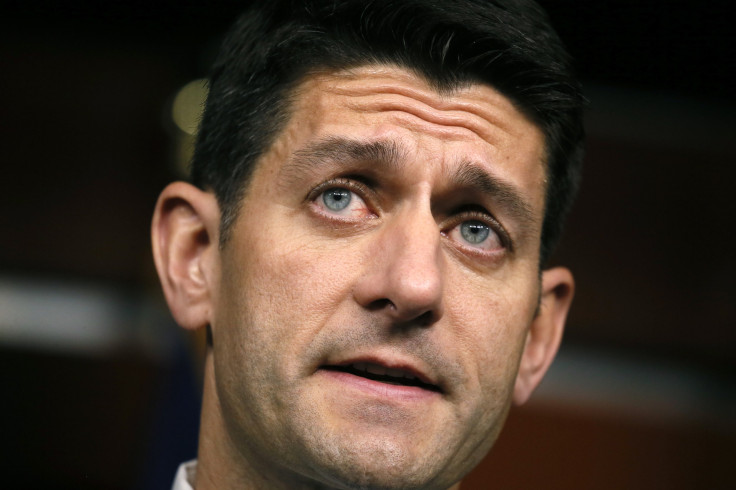Puerto Rico Debt Crisis: US House Speaker Paul Ryan Rules Out Taxpayer Bailout, But Some Can’t Agree On What ‘Bailout’ Means

House Speaker Paul Ryan said Friday that a new version of a bill to help Puerto Rico tackle its $72 billion debt load will be introduced soon.
“Right now, we are working with the Natural Resources Committee, the administration, and our Democratic counterparts to iron out the final constitutional and legal questions surrounding the legislation,” the Wisconsin Republican said in a statement. “Let me be clear: There will be no taxpayer bailout of Puerto Rico.”
The Puerto Rico Oversight, Management and Economic Stability Act (or Promesa, which is Spanish for “promise”) introduced in the House in April is currently being revised, and the new version could be introduced as early as next week.
The bill would establish a federal oversight board to participate in managing Puerto Rico’s dismal finances and would open the way for a lowering of the U.S. commonwealth’s debt. Unlike mainland states and municipalities, without congressional approval Puerto Rico can’t pursue Chapter 9 restructuring as Detroit filed in 2013 and East Cleveland, Ohio, is in the process of considering.
But some oppose the measure that could lower the island’s debt burden, causing creditors to take losses. Most holders of about 20 different Puerto Rican bonds are hedge funds that have been buying bonds at a discount from mutual funds in recent years, but Oppenheimer Funds and Franklin Templeton mutual fund managers still hold sizable portions of Puerto Rico’s debt. These lenders have threatened to fight for their money in the courts, a process that could take years and would likely wind up with them taking losses on their investments.
Most agree with Ryan that Promesa isn’t a bailout because it doesn’t use taxpayer money to pay the island’s debts. But hedge funds and dark money groups (which are not obligated to disclose their source of funding) are pushing hard against any measures that would force them to take losses.
These opponents have congressional backers.
Rep. John Fleming, R-La., said last month that even if taxpayer money isn’t being used to bail out Puerto Rico, Promesa acts in a similar fashion because it’s “changing the rules” on lenders.
Puerto Rico has been in financial straits and mired in fiscal mismanagement for years, but its debt load doubled since 2005 as lenders chased the higher returns characteristic of riskier lending. The tax-free nature of the bonds encouraged this lending and for years enabled the island’s government to delay difficult and unpopular decisions until its debt load became unmanageable.
Critics argue that this is predatory lending and that if investors chose to take risks they should accept the consequences.
“Investors should suffer the loss,” John Perkins, author of the 2004 book “Confessions of an Economic Hit Man,” told International Business Times in an August report on Puerto Rico’s first missed bond payment.
In May, Puerto Rico defaulted on most of a $422 million debt payment. Its next major payment, of nearly $2 billion, is due in July.
© Copyright IBTimes 2024. All rights reserved.





















